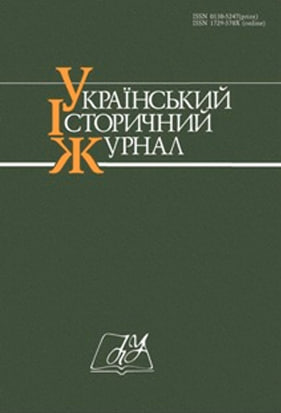Political Parties and the Peasantry in the Ukrainian Provinces of the Russian Empire in the Late Nineteenth – Early Twentieth Centuries: Sociomental and Institutional Factors of Interaction
DOI:
https://doi.org/10.15407/uhj2021.02.029Keywords:
political parties, peasantry, institutions, church, state institutions, higher education institutionsAbstract
The purpose of the study is to clarify the relationship between political parties and the peasantry in the Ukrainian provinces of the Russian Empire in the late 19th – early 20th centuries in the context of the peasant mentality and social practices institutions of society. The methodology is based on the principles of historicism, objectivity and systematics. The authors used the of institutional and structural-functional analysis and methodological principles of the history of mentality. Scientific novelty. Based on a wide range of sources, the influence of socio-mental and institutional factors on the relationship between political parties and the peasantry in the late 19th – early 20th centuries was described. Conclusions. The Ukrainian peasantry underwent changes in the era of modernization, but the main feature of its mentality remained the social ideal – work on their own land. Only a small part of the farmers were members and supporters of political organizations and had an idea of their program tasks and activities. According to the patriarchal system, the farmers were hoping the “tsar-father” (“king-father”) will help to resolve the land question. The “tsar-father” was perceived separately from representatives of higher, central and local government agencies. The peasants considered the latter alien and even hostile to their interests. The executive branch of tsarism persecuted members of socialist and liberal organizations and were loyal to right-liberal and conservative unions. Zemstvo officials were activists of liberal and, to a lesser extent, socialist political organizations. Zemstvo activists did much for the development of Ukrainian regions, but their activities remained largely incomprehensible to the uneducated peasantry, which weakly supported them. The state-owned Russian Orthodox Church defended the autocracy and supported the conservative-monarchist movement in every possible way. However, among seminarians and priests there were supporters of socialist and liberal ideas who worked among rural workers. Socialist and liberal ideas were widespread in higher educational institutions; faculty members belonged mostly to the liberal Constitutional Democratic Party and students mostly to socialist organizations. The liberal professors sought to influence the peasantry through the press, and the students engaged in agitation in the countryside. In general, only a small number of farmers were positive about such agitation.


